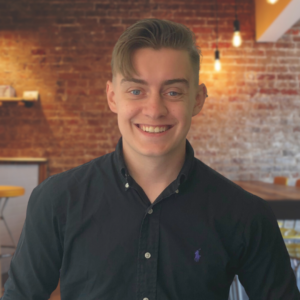This year River Simmons and Sam Bos-Coley took off to the NCASC event in Liverpool. The event covered 3 key days and was intended for anybody interested in providing efficient health, social care, and education services to vulnerable adults, children, and youth, as well as those working in local and federal government, non-profit organisations, and the private sector.
Sam and River feel honoured to have been able to attend this insightful and informative event. Read on below to find out more about what each day covered.
Day 1
Day one covered the question, how might person-centred care and support be co-created?
This first day was led by Hugh Evans (Executive Director of BCC), Isaac Samuels (ADASS/TLAP) Kathryn Smith (Chief Executive Officer), and Megan Belcher (Co-Production Lead BCC).
This event emphasised how crucial it is to include people who have experienced the need for person-centred care and support throughout the entire process. Especially, when deciding on measures that will eventually be taken to support patients in receiving care.
Although it seems like such a simple approach, it is not being applied correctly nationwide to aid those who need it. Evens outlined some of the difficulties they had previously encountered at Bristol City Council and talked about some of the concepts and actions they have taken to guarantee co-production in adult social care. Belcher went on to further provide insight into several of the projects she has been creating and collaborating on with neighbourhood community members.
It was brought up rather nicely that, in general, things are probably best characterised as being in the co-creation stage right now, if at all, but that they must continue to go on to the co-production stage. Co-production is the ultimate aim, while co-creation is the first step.
We also found out the next steps in the process. Councils must initiate the introduction of Co-Production leaders if none are already in place. Finding out how many businesses have a lead in place would be incredibly helpful in this process and increase project efficiency.
NCASC was a great place to build contacts and create new relationships with business professionals. After attending the event we were able to assess which contacts would be the most beneficial to follow up with.
Day 2
Covering all corners of AI, day two was Led by Sarah Rank (National Lead for Digital at ADASS), Nick Clinch (AD Norfolk), and Debbie Bartlett (Interim AD Norfolk). This collaboration, in partnership with Newton Europe, aimed to integrate AI into community care, starting with fall prevention.
Norfolk’s innovative approach involved leveraging AI to predict falls before they occur. By collecting and analysing data, they aimed to proactively address potential risks, revolutionising their care approach. This shift from reactive to proactive care could significantly reduce healthcare costs per person. Despite the high anticipation, conclusive outcomes regarding reduced falls and cost impact are expected next year.
A standout aspect of their strategy was how they addressed data privacy concerns. Rather than emphasising AI use, they prioritised informing individuals about potential fall risks, focusing on their well-being before technical details.
However, questions remain regarding project costs and how Norfolk effectively allocated funds amid nationwide budget constraints, crucial for understanding sustainability and scalability.
Day 3
The third day showcased insights from Care Quality Commission (CQC) pilots through a panel featuring Andy McGowan, Hazel Summers, Glen Garrod, Karen Pavey, and Richard Hannigan.
Both Glen & Karen explained their experiences of having CQC in great detail. Glen was very transparent about the approach to CQC that was taken by North Lincs’s key piece of advice was for councils to have a clear picture of what they want from the assessments. They need to think about the challenges they have & take this as an opportunity to learn & work collaboratively. Everyone has weaknesses, it’s about being transparent with those, identifying them early and being open to working to fix them. Also highlighted the importance of knowing who in the team is going to pay a key part in the preparation work well in advance.
Karen discussed the benefits of talking to children’s colleagues who of course have been going through inspection for years with Ofsted. This helped them with their mindset & approach. Karen discussed some of the processes they used at Lincs such as running weekly webinars to discuss progress and update the self-assessment tool.
Both Glen and Karen stressed acknowledging and celebrating staff efforts throughout the process, fostering a culture of appreciation irrespective of the assessment outcome.
Hazel Summers emphasised the huge efficacy of peer challenge reviews, underlining her belief that self-awareness is pivotal in understanding the council’s position before inspections. Aligning the vision for adult social care between frontline staff and departmental heads emerged as crucial in order for everyone to advance together.
These three days highlighted the transformative potential of AI in proactive care as well as the emphasis on an invaluable culture of learning, transparency, and collaboration within the healthcare landscape. Sam and River have expressed their thanks and satisfaction of the NCASC event and look forward to their next attendance.
These insights aren’t over, keep an eye out for next week where we share the second part of Sam and River’s NCASC notes and experience.
Please get in touch to find out more.
Contact our
Specialist Hiring Teams
Panoramic Associates have dedicated hiring experts who specialise in their chosen market. Use the adjacent form to contact our team about your career ambitions or hiring requirement.

